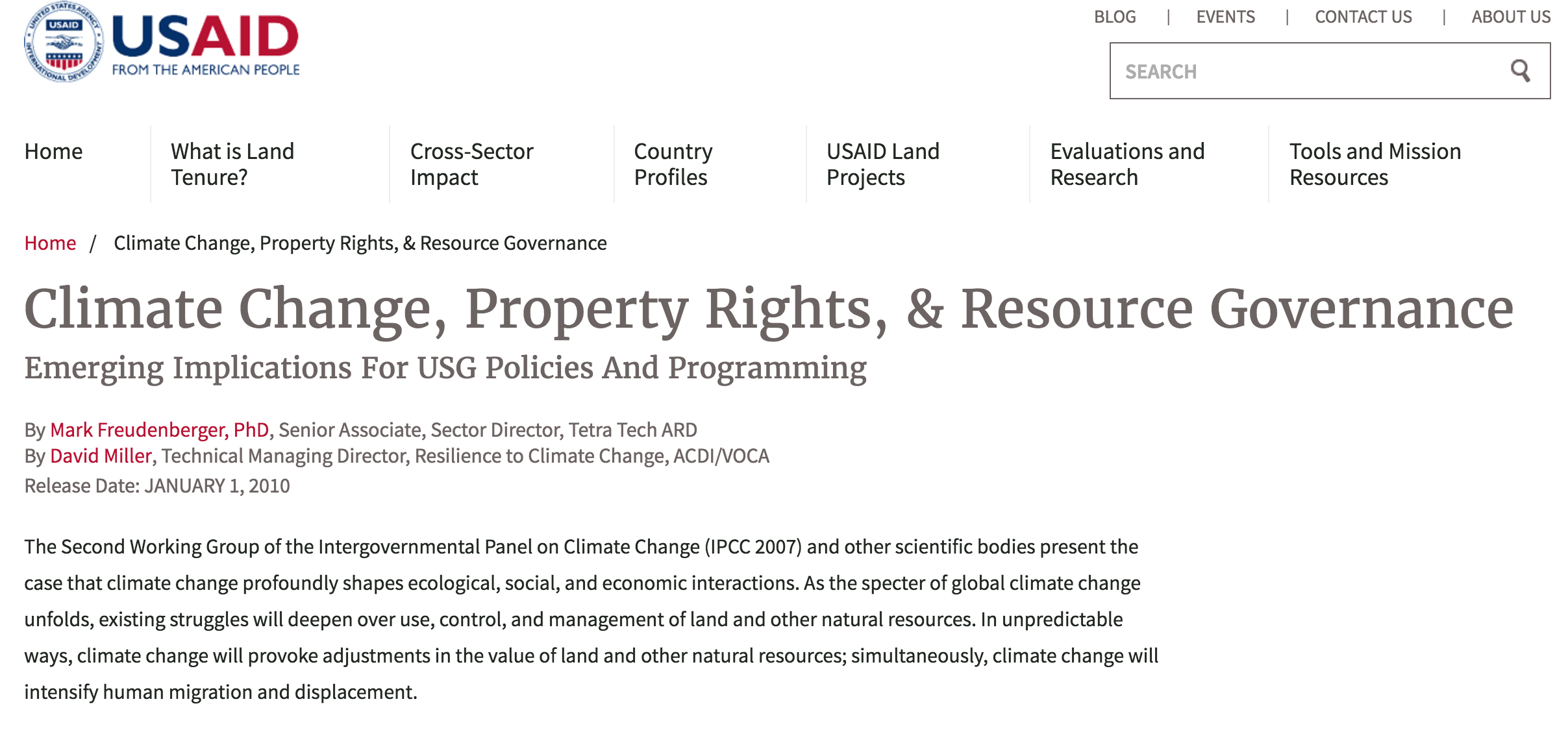Location
About Us
We envision a world in which land governance systems, both formal and informal, are effective, accessible, and responsive for all. This is possible when land tenure and property rights are recognized as critical development issues and when the United States Government and its development partners demonstrate consistent attention and a firm commitment to supporting coordinated policies and programs that clarify and strengthen the land tenure and property rights of all members of society, enabling broad-based economic growth, gender equality, reduced incidence of conflicts, enhanced food security, improved resilience to climate change, and effective natural resource management.
Mission Statement
The USAID Land Tenure and Resource Management (LTRM) Office will lead the United States Government to realize international efforts—in accordance with the U.S. Government’s Land Governance Policy—to clarify and strengthen the land tenure and property rights of all members of society—individuals, groups and legal entities, including those individuals and groups that are often marginalized, and the LTRM Office will help ensure that land governance systems are effective, accessible, and responsive. We will achieve this by testing innovative models for securing land tenure and property rights and disseminating best practice as it relates to securing land rights and improving resource governance within the USG and our development partners.
Members:
Resources
Displaying 296 - 300 of 440Property Rights and Resource Governance Country Profile: Chad
In spite of considerable oil revenues, Chad remains one of the world’s poorest countries, with 80% of its labor force in the agricultural sector. The country’s agricultural potential is underexploited. There are sufficient water resources to irrigate over 5 million hectares of land, weather droughts, and increase agricultural production substantially. With appropriate infrastructure and support, one-third of Chad’s land area could be used to grow crops.
Climate Change, Property Rights, & Resource Governance
The Second Working Group of the Intergovernmental Panel on Climate Change (IPCC 2007) and other scientific bodies present the case that climate change profoundly shapes ecological, social, and economic interactions. As the specter of global climate change unfolds, existing struggles will deepen over use, control, and management of land and other natural resources. In unpredictable ways, climate change will provoke adjustments in the value of land and other natural resources; simultaneously, climate change will intensify human migration and displacement.
USAID Country Profile: Property Rights and Resource Governance - Bangladesh
This is USAID's review of Bangladesh's rules and regulations on property rights and resource governance.
Land Tenure Concepts and Land Tenure Concepts and Definitions
This is document in form of presentation provides participants with a common vocabulary of land tenure and property rights (LTPR) terms and concepts • Explain how property rights are components of land t t th diff t i hi h th tenure systems, the different ways in which they relate to each other, and the scope for innovation • Identify some common inconsistencies in the use of key terms, which can lead to confusion in discussion of land tenure policy issues
LAND TENURE, PROPERTY RIGHTS, AND FOOD SECURITY
This policy brief addresses the essential problem in linking property rights with food security.



